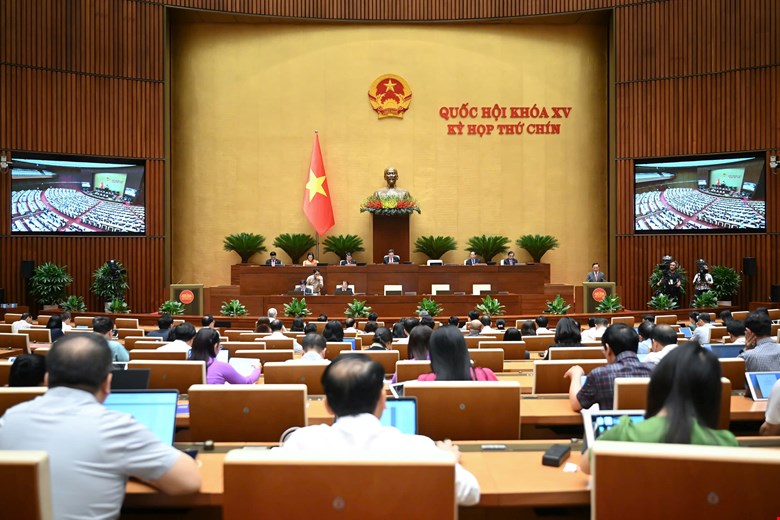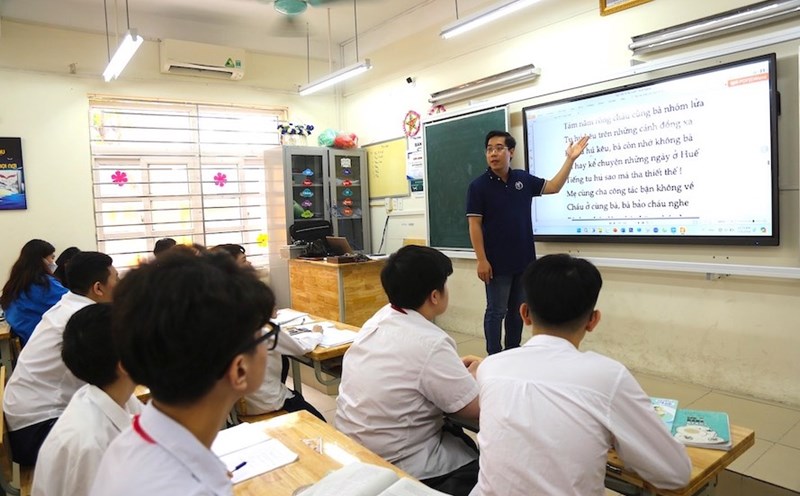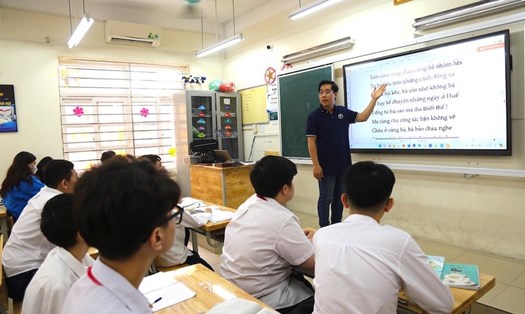The results of the electronic vote showed that 452/453 delegates present voted in favor, accounting for 94.56%. Thus, the National Assembly has officially passed the Resolution.
The Resolution stipulates a 2% reduction in value-added tax rates, applicable to groups of goods and services specified in Clause 3, Article 9 of the Law on value-added Tax No. 48/2024/QH15 (to 8%), except for some groups of goods and services subject to special consumption tax: Telecommunications, financial activities, banking, securities, insurance, real estate business, metal products, mining products (except coal), goods and services subject to special consumption tax (except gasoline).

This Resolution takes effect from July 1, 2025 to December 31, 2026.
According to Minister of Finance Nguyen Van Thang, in Submission No. 206/TTr-CP dated April 16, 2025, the Government reported that the expected policy of reducing VAT rates by 2% will reduce state budget revenue in the last 6 months of the year by about 39.54 trillion VND, and in 2026 by about 82.2 trillion VND.

Reducing VAT affects the decrease in state budget revenue but also stimulates production and promotes production and business activities, thereby contributing to creating more revenue for state budget revenue (including the possibility of increasing revenue from other taxes thanks to the spillover effect of the VAT reduction policy).
In order to compensate for the revenue shortfall due to policy implementation, the Government will focus on directing ministries, central and local agencies to focus on implementing tasks, solutions, and fiscal policies according to the Resolutions issued by the National Assembly and the Government to remove difficulties for businesses and people, promote GDP growth drivers in 2025 to reach at least 8% and strive for double digits in more favorable conditions, thereby creating more revenue for the state budget.
In addition, be determined in collecting state budget revenue, strengthening management, reforming administrative procedures, promoting digital transformation in tax management, especially in key areas and areas, land revenue, real estate transfer, e-commerce activities, digital business activities; expand electronic invoices generated from cash registers in business areas, catering services, chain hotels, gasoline and gold trading... Strive to collect state budget revenue in 2025 about 10% higher than the estimate in 2024.
At the same time, strictly manage state budget expenditures, increase spending savings; proactively use reserves, reserves and other legal resources to spend on natural disaster prevention and control, epidemics and urgent tasks arising according to regulations, ensuring budget balance at all levels.











